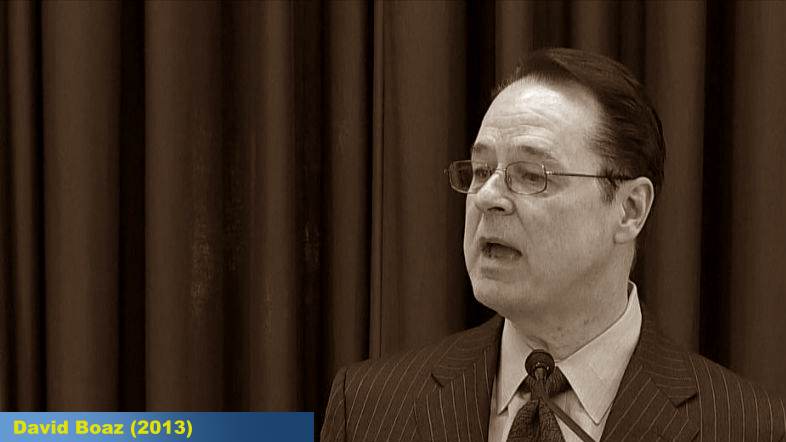David Boaz was a friend and mentor to many. We now learn, to our sadness, of his death on Friday.
Who was David Boaz? Here is the bare bones of his public identity, from Wikipedia, first paragraph:
David Douglas Boaz (/ˈboʊ.æz/; August 29, 1953 – June 7, 2024) was an American author, philosopher and editor. He was a distinguished senior fellow and the executive vice president of the Cato Institute, an American libertarian think tank.
To discriminating readers, Mr. Boaz was the author and editor of a number of books on individual liberty, including:
- Libertarianism: A Primer, Free Press 1997.
- The Libertarian Reader, Editor, Free Press 1997.
- The Politics of Freedom: Taking on The Left, The Right and Threats to Our Liberties, 2008.
- The Libertarian Mind: A Manifesto for Freedom, Simon & Schuster, 2015.
Brian Doherty, author of Radicals for Capitalism: A Freewheeling History of the Modern American Libertarian Movement (2007), published, at Reason, probably the most comprehensive obituary yesterday. After several paragraphs telling of Mr. Boaz’s early history with Young Americans for Freedom, the 1980 Clark for President campaign, his work at the Competitive Enterprise Institute, Doherty focuses on the key position from which David Boaz affected American political culture:
Boaz began working at the Cato Institute when it moved to D.C. in 1981, where he became executive vice president and stayed until his retirement in 2023. He was Cato’s leading editorial voice for decades, setting the tone for what was among the most well-financed and widely distributed institutional voices for libertarian advocacy. Cato, with Boaz’s guidance, provided a stream of measured, bourgeois outreach policy radicalism intended to appeal to a wide-ranging audience of normal Americans, not just those marinated in specifically libertarian movement heroes, styles, and concerns.
David Boaz was, above and apart from his work at Cato, a respected individual: friend, mentor, citizen … and unwavering enemy of tyranny.
